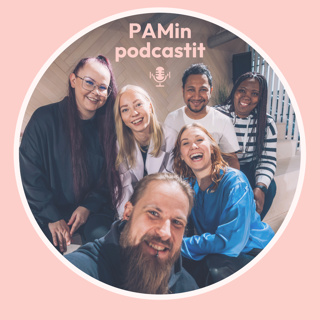
HOW TO OPTIMIZE YOUR CONTENTSTRATEGY FOR LEADGENERATION
: #contentstrategy #leadgeneration #digitalmarketing We live in the era of an always multitasking, ever-moving consumer who is hard to impress. These days most brands are forced to up their content creation game and start producing in-depth and interactive content, investing into video creation and designing original graphics. However it is not enough. While content quality is fundamental, your #contentstrategy will fail to have any impact on your company’s bottom line unless it is optimized for capturing and nurturing leads. Hi, i’m cally, from the international institute of digital marketing. Here are three tips to optimize your #contentstrategy. Step 1: optimize for the customers’ journeys, not just keywords Instead of targeting keywords, target a customer’s experiences. Behind each search query, there’s that searcher’s intent, i.e. What they are hoping to do when they see search results. As buying journeys are becoming more and more complicated and unpredictable, you may adopt an even more robust approach. In other words, for every content you are thinking to create next, identify: Which keywords (and questions) your target reader is likely to type into the search box when looking for something your content is answering / solving What may have brought them to search for those specific queries (are they in the middle of the project? Are they in the process of buying something? Are they fighting a condition? Etc.) Create content that serves #2 in the best possible way. Provide directions and downloads which would match all possible scenarios that may have brought people to your site. Step 2: hook up your optin forms to a customer relationship management platform Firstly, people are less and less willing to give away their email addresses. Secondly, our email inboxes are so cluttered these days that it is next to impossible to get your marketing email noticed. It is high time that we rethink our lead nurturing process. Two possible ways to try out are: ● Hook up your opt-in forms to a customer relationship management platform. Hubspot provides one for free, but there are more crm options to consider. A crm platform will help you organize your contacts and develop a more comprehensive strategy of reaching out to them. You can use social media, keep a detailed record of all your interactions and identify best ways to turn your readers into buyers. ● Use facebook retargeting to be able to reach out to your content readers with personalized ads through the platform. This will allow you to get in touch with those people who chose not to subscribe to your list. Step 3: monitor and re-evaluate your conversion funnel Finally, changing the way you evaluate your content effectiveness is a must if you want to better understand which of those articles do the best job matching your customers’ journeys. Google analytics is the most obvious option here, only it is not easy to figure out. Finteza is another option, especially with their “funnels” option allowing you to clearly see which pages “funnel” web users into becoming leads and buyers. Creating a funnel is easy: simply select your article url and then any number of “desired” actions (clicks, form fills, etc.) You’d like your article readers to perform. For more information, visit www.iidm.world
23 Touko 20223min

3 ALTERNATIVE SEARCH ENGINES TO GOOGLE (TRIED & TESTED)
#startpage #qwant #Duckduckgo Google alternatives are everywhere, but are they any good? Hi, i’m cally, from the international institute of digital marketing. Here is a review on 3 alternative search engines to google. 1. #startpage #startpage exclusively uses results from google, so it’s effectively google without the tracking. #startpage doesn’t record your ip address, and it doesn’t serve tracking cookies. One great #startpage feature is dubbed “anonymous view.” This protects you against website fingerprinting, cookies, social media tracking pixels, and other invasions of privacy when visiting websites. 2. #qwant Started in 2013, #qwant is a search engine based in paris. Its search results are powered by bing and supplemented by those collected from its own web crawler. #qwant does not collect any data or use tracking cookies. It also dissociates your query and ip address for further anonymity. #qwant offers “search shortcuts” that allow you to search for results from a specific website. 3. #Duckduckgo Possibly the most popular private search engine, #Duckduckgo (ddg) has positioned itself as “anti-google” since its launch in 2008. #Duckduckgo sources its results from over 400 different places, including its own crawler (duckduckbot), crowdsourced sites (e.g., wikipedia), and partners (e.g., bing). According to #Duckduckgo, it does not store personally identifiable information like ip addresses. It also doesn’t use tracking cookies. However, it does save searches, though it claims to do it in a non-identifiable way. #Duckduckgo’s “bangs” feature takes you directly to search results on other sites. For example, typing “!w” and a keyword (e.g., !W singapore) takes you directly to wikipedia’s page for singapore. For more information visit www.iidm.world #contentmarketing #digitalmarketing #digitalmarketing #marketing #socialmediamarketing #socialmedia #business #marketingdigital #branding #seo #instagram #onlinemarketing #advertising #digital #entrepreneur #contentmarketing #marketingstrategy #digitalmarketingagency #marketingtips #follow #smallbusiness #design #bhfyp #webdesign #like #photography #graphicdesign #content #art #fashiondigitalmarketing #digitalmarketingagency #digitalmarketingsalary #whatisadigitalmarketing #digitalmarketingcompanies #digitalmarketingjobs #digitalmarketingcertificate #digitalmarketingcompany #digitalmarketingcourse #digitalmarketingservices #digitalmarketingstrategy #marketingdigital #digitalmarketingconsultant #digitalmarketingagencynearme #googledigitalmarketingcertification #digitalmarketingmanager #digitalmarketinginternship #digitalmarketinginstitute
22 Touko 20221min

META TAGS FOR SEO: A SIMPLE GUIDE FOR BEGINNERS
#seo #metadescription #metaviewport #metatitle Meta tags are snippets of code that tell search engines important information about your web page, such as how they should display it in search results. They also tell web browsers how to display it to visitors. Hi, i’m cally, from the international institute of digital marketing. Let's look at the 4 most important meta tags for #seo. Meta title This is the page title that google and most other search engines show in search results. Titles are critical to giving users a quick insight into the content of a result and why it’s relevant to their query. It’s often the primary piece of information used to decide which result to click on, so it’s important to use high-quality titles on your web pages. Best practices Write a unique title tag for each page; Be brief, but descriptive; Avoid generic and vague titles; Use sentence case or title case; Create something click-worthy—not clickbait; Match search intent; Include your target keyword where it makes sense; Keep it under 60 characters. Meta description The meta description summarizes the page’s content. Search engines often use it for the snippet in search results. Best practices Write a unique description for each page; Try to summarize content accurately; Avoid generic descriptions; Use sentence case; Create something click-worthy, not clickbait; Match search intent; Include your target keyword where it makes sense; Keep it under 160 characters Meta robots The meta robots tag tells search engines if and how they should crawl your web pages. Best practices Use meta robots tags only when you want to restrict the way google crawls a page; Don’t block pages with meta robots tags in robots.txt; Meta viewport A meta viewport tag sets the visible area of a web page. It is used to instruct the browser how to render the page on different screen sizes (i.e., desktop/tablet/mobile). Best practices Use meta viewport tag on all web pages; Use the “standard” tag unless you know what you’re doing For more information, visit www.iidm.world #contentmarketing #digitalmarketing #digitalmarketing #marketing #socialmediamarketing #socialmedia #business #marketingdigital #branding #seo #instagram #onlinemarketing #advertising #digital #entrepreneur #contentmarketing #marketingstrategy #digitalmarketingagency #marketingtips #follow #smallbusiness #design #bhfyp #webdesign #like #photography #graphicdesign #content #art #fashiondigitalmarketing #digitalmarketingagency #digitalmarketingsalary #whatisadigitalmarketing #digitalmarketingcompanies #digitalmarketingjobs #digitalmarketingcertificate #digitalmarketingcompany #digitalmarketingcourse #digitalmarketingservices #digitalmarketingstrategy #marketingdigital #digitalmarketingconsultant #digitalmarketingagencynearme #googledigitalmarketingcertification #digitalmarketingmanager #digitalmarketinginternship #digitalmarketinginstitute
19 Touko 20222min

4 GOOGLE ANALYTICS TRACKING MISTAKES (AND HOW TO FIX THEM)
#analytics #tracking #google There’s a high risk of making bad decisions if you’re blindly relying on the data that you see in #google #analytics. Hi, i’m cally, from the international institute of digital marketing. Here are 4 tips to help you minimize data skewing factors. 1. Missing or duplicate #google #analytics code This sounds trivial, but it’s a common problem—especially on sites that use more than one cms. The good news is that #google #analytics has missing code notifications built-in. The bad news is that it’s slow, and may take weeks to alert you about pages with missing code. It also doesn’t tell you about duplicate codes, which is another common problem. For that reason, it’s best not to rely on #google’s notifications and instead crawl your site for errors with a tool that allows custom extraction. 2. Incorrectly set up interaction events If you’re using interaction events for #tracking events that fire automatically on each page, like scroll depth #tracking, that’ll result in close-to-zero bounce rates across your whole website—which isn’t good. You can easily spot these issues by looking for unrealistically low bounce rates in ga. If you suspect interaction events as the culprit, change the event’s “non-interaction hit” setting from false to true in #google tag manager. 3. #tracking hits from other domains It’s surprisingly easy for someone to mess up your data if you don’t take preventive measures. Why? Because your ga/gtm #tracking code is visible to anyone who opens your source code, so anyone can send hits to ga servers under your #tracking code. Luckily, it’s easy to prevent this from happening by setting up a view filter. 4. #tracking your own sessions There are a lot of irregular actions we make on our websites, and we don’t want those reflected in our data. So, while you’re setting up filters, make sure to exclude hits from internal ip addresses. For more information, visit www.iidm.world #contentmarketing #digitalmarketing #digitalmarketing #marketing #socialmediamarketing #socialmedia #business #marketingdigital #branding #seo #instagram #onlinemarketing #advertising #digital #entrepreneur #contentmarketing #marketingstrategy #digitalmarketingagency #marketingtips #follow #smallbusiness #design #bhfyp #webdesign #like #photography #graphicdesign #content #art #fashiondigitalmarketing #digitalmarketingagency #digitalmarketingsalary #whatisadigitalmarketing #digitalmarketingcompanies #digitalmarketingjobs #digitalmarketingcertificate #digitalmarketingcompany #digitalmarketingcourse #digitalmarketingservices #digitalmarketingstrategy #marketingdigital #digitalmarketingconsultant #digitalmarketingagencynearme #googledigitalmarketingcertification #digitalmarketingmanager #digitalmarketinginternship #digitalmarketinginstitute
18 Touko 20222min

CONTENT HUBS FOR SEO: HOW TO GET MORE TRAFFIC AND LINKS WITH TOPIC CLUSTERS
#seo #content #traffic #content hubs are useful for more than just neatly organizing #content. They also have #seo benefits. Connecting your hub page and subpages using relevant internal links builds semantic relationships between #content. That may help to boost what we like to call “topical authority,”meaning google sees your site as authoritative when it comes to a particular topic. Hi, i’m cally, from the international institute of digital marketing. Here’s how to create a #content hub 1. Brainstorm topics for hub pages Grab a pen and paper, put your thinking cap on, and note down any topics that spring to mind. If you’re struggling for ideas, head over to ahrefs’ keywords explorer, search for a broad topic related to your niche, then go to the phrase match report. You’ll see a lot of ideas here, and not all of them will be suitable for hub pages. 2. Choose relevant subtopics The key here is to choose subtopics that are highly related to your chosen topic. For example, if your hub page is about “how to make wine,” then it wouldn’t make much sense to create a subpage about types of wine glasses. Good subpages give more information about a related topic. 3. Link them Your hub page should link to your subpages, and your subpages should link back to the hub. Many of the hubs you’ll come across utilize custom designs to do this. While this looks good and makes sense from a user perspective, it’s not a requirement. After all, some people don’t have the resources to create elaborate hub designs. So, if you’re creating hubs on a budget, it’s fine to use regular links. For more information, visit www.iidm.world #contentmarketing #digitalmarketing #digitalmarketing #marketing #socialmediamarketing #socialmedia #business #marketingdigital #branding #seo #instagram #onlinemarketing #advertising #digital #entrepreneur #contentmarketing #marketingstrategy #digitalmarketingagency #marketingtips #follow #smallbusiness #design #bhfyp #webdesign #like #photography #graphicdesign #content #art #fashiondigitalmarketing #digitalmarketingagency #digitalmarketingsalary #whatisadigitalmarketing #digitalmarketingcompanies #digitalmarketingjobs #digitalmarketingcertificate #digitalmarketingcompany #digitalmarketingcourse #digitalmarketingservices #digitalmarketingstrategy #marketingdigital #digitalmarketingconsultant #digitalmarketingagencynearme #googledigitalmarketingcertification #digitalmarketingmanager #digitalmarketinginternship #digitalmarketinginstitute
18 Touko 20221min

4 GOOGLE RANKING FACTORS YOU SHOULDN’T IGNORE
#google #ranking #backlinks Most lists of #google #ranking factors are too long. They focus on listing every factor under the sun instead of those that actually matter. Even worse, because nobody knows them all, most contain a lot of myths. Hi, I’m Cally, from the International Institute of Digital Marketing. Here are 4 #google #ranking factors that most deserve your attention. #backlinks #backlinks are arguably the most important #ranking factor. How do we know? #backlinks form the basis ofPageRank, which is the foundation of #google’s #ranking algorithm. Independent research also confirms the relationship between #backlinks and organic traffic. However, not all #backlinks are created equal. Lots of factors contribute to a backlink’s ability to move the needle, and the two most important are relevance and authority. Topical authority #google wants to rank pages from authoritative sources—and this goes way beyond #backlinks. But is there any evidence for “topical authority” as a #ranking factor besides the anecdotal? Absolutely. #google’s search quality rater guidelines mention something called E‑A-T. This stands for expertise, authoritativeness, and trustworthiness. Search intent #google doesn’t rank the same type of content for every query. Analyzing the current top-#ranking resultsfor the “four C’s of search intent” is an excellent way to understand the basics of how to optimize for a query. The four C’s are: Content style Content type Content format Content angle Content depth #google wants to rank the most useful resultfor the query, so covering everything searchers want to know is key. However, this isn’t about content length. Longer content isn’t always better. It’s about covering what’s important to the searcher and what they expect to see. For more information, visit www.iidm.world #contentmarketing #digitalmarketing #digitalmarketing #marketing #socialmediamarketing #socialmedia #business #marketingdigital #branding #seo #instagram #onlinemarketing #advertising #digital #entrepreneur #contentmarketing #marketingstrategy #digitalmarketingagency #marketingtips #follow #smallbusiness #design #bhfyp #webdesign #like #photography #graphicdesign #content #art #fashiondigitalmarketing #digitalmarketingagency #digitalmarketingsalary #whatisadigitalmarketing #digitalmarketingcompanies #digitalmarketingjobs #digitalmarketingcertificate #digitalmarketingcompany #digitalmarketingcourse #digitalmarketingservices #digitalmarketingstrategy #marketingdigital #digitalmarketingconsultant #digitalmarketingagencynearme #googledigitalmarketingcertification #digitalmarketingmanager #digitalmarketinginternship #digitalmarketinginstitute
13 Touko 20222min

How to Make Sure Your Social Media Posts Really Stand Out in 2022
#Socialmediamarketing #marketing #Digitalmarketing With so many brands investing more and more in their social media presence, it is becoming harder and harder to stand out. You need to be always experimenting with new tricks and formats, and you need to always surprise your current followers to acquire new ones. Hi, i’m cally, from the international institute of #digitalmarketing. Here are some of the most creative tools and tricks you can use to make your social media content stand out! 1. Up your animated gif game Images have scientifically been proven to improve social media engagement and animated images perform even better, so it is only natural to start by upping your visual #marketing game. From creative cinemagraphs to humorous movie memes, animated gifs made a confident come-back to our lives a few years ago, and they remain powerful social media content these days. 2. Take advantage of ascii art Text art (also referred to as ascii art) is another older trend that made a comeback thanks to twitter. Somewhere between the widely popular shrug emoticon and the sign bunny memes, turning your keyboard symbols into funny cartoons is a thing again! 3. Create long-form content Long-form content is an overall trend that impacts many #marketing tactics. More and more brands are creating huge lists and tutorials that take hours to read. They have been found to rank better (longer content receives 77.2% more backlinks than short articles) and they appear to do well on social media. But long-form content is not only good for your on-site content—it’s also great for social media updates. More and more thought leaders are putting long twitter threads together that read like articles. For more information visit www.iidm.world #contentmarketing #digitalmarketing #digitalmarketing #marketing #socialmediamarketing #socialmedia #business #marketingdigital #branding #seo #instagram #onlinemarketing #advertising #digital #entrepreneur #contentmarketing #marketingstrategy #digitalmarketingagency #marketingtips #follow #smallbusiness #design #bhfyp #webdesign #like #photography #graphicdesign #content #art #fashiondigitalmarketing #digitalmarketingagency #digitalmarketingsalary #whatisadigitalmarketing #digitalmarketingcompanies #digitalmarketingjobs #digitalmarketingcertificate #digitalmarketingcompany #digitalmarketingcourse #digitalmarketingservices #digitalmarketingstrategy #marketingdigital #digitalmarketingconsultant #digitalmarketingagencynearme #googledigitalmarketingcertification #digitalmarketingmanager #digitalmarketinginternship #digitalmarketinginstitute
12 Touko 20221min





















